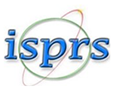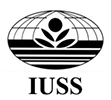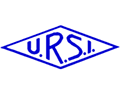Briefs of ISC GeoUnions Standing Committee on Disaster Risk Reduction August 2022
ISC GeoUnions Standing for DRR has published a Brief about Statement on the global and effective use of vaccination against Covid-19. Full-text is available here.
ISC GeoUnions Standing for DRR has published a Brief aboutAn Urgent Call to Save our Waterways and Seas. Full-text is available here.
ISC GeoUnions Standing for DRR has published a Brief about How can we communicate anthropogenic factors that contribute to natural disasters? ---Transdisciplinary approaches enhance cooperation among different stakeholders. Full-text is available here.
Brief of ISC GeoUnions Standing Committee on Disaster Risk Reduction December 2020
ISC GeoUnions Standing for DRR has published a Brief about Meteorological Observation and Upper Atmospheric Climate Data Share. Full-text is available here.
ISC GeoUnions Standing Committee on Disaster Risk Reduction
The GeoUnions Standing Committee on Disaster Risk Reduction (ISC-GU-SC-DRR) was established in July 2020, initiated and lead by Prof. Orhan Altan, who was nominated by the International Science Council (ISC) GeoUnions Steering Committee and ISPRS. The newly established Committee seeks to strengthen the long-standing ISC leadership in advancing DRR. It also honours the ISC’s (former ICSU’s) role in preparation of world conferences on DRR. For more information see the comittee website here.
Geoinformation for Disaster Management
In the past several years, there have been significant technological advances in the field of crisis response. However, many aspects concerning the efficient collection and integration of geo-information, applied semantics and situation awareness for disaster management remain open. Improving crisis response systems and making them intelligent requires extensive collaboration between emergency responders, disaster managers, system designers and researchers alike. To facilitate this process, the Gi4DM (Geoinformation for Disaster Management) conferences have been held regularly since 2005. The events are coordinated by the Joint Board of Geospatial Information Societies (JB GIS) and GeoUnions of the International Science Council (ISC). The last conference Gi4DM 2018 organized by the ISPRS-URSI Joint Working Group ICWG III/IVa: Disaster Assessment, Monitoring and Management and supported by several GeoUnions was held in Istanbul, Turkey, 18-21 March 2018. The major outcomes of the conference is now available as a book containing 12 scientific papers focusing on the intelligent use of geo-information, semantics and situation awareness. The book is available online
Geoscience international: the role of scientific unions
GeoUnions have been coordinating and promoting international efforts in Earth and space sciences since the beginning of the 20th century. Thousands of scientists from many nations and specific scientific disciplines have developed ways of cooperation through international unions and learned how to work together to promote basic geosciences. The unions have been initiating, developing, and implementing international cooperative programmes, setting scientific standards, developing research tools, educating and building capacity, and contributing to science for policy.
New paper published in the open-access journal "History of Geo- and Space Sciences" analyses the role of GeoUnions in and their added value to the promotion of geoscience internationally in the arena of the existing and emerging professional societies of geoscientists. The history of the geounions and the development of international cooperation in geosciences are reviewed in this paper in the context of scientific and political changes over the last century. Scientific and organisational aspects of their activities, including cooperation with international and intergovernmental institutions, are analysed using the example of the International Union of Geodesy and Geophysics (IUGG). The GeoUnions' activities are compared to those of professional societies. Future development of scientific unions and their role in the changing global landscape of geosciences are discussed (Ismail-Zadeh, A., 2016. Geoscience international: the role of scientific unions, Hist. Geo Space. Sci., 7, 103-123, doi:10.5194/hgss-7-103-2016).
Future of the Ocean and its Seas
At the G7 Meeting of the Science Ministers in Berlin, Germany, on 8-9 October 2015, the Ministers resolved to take action to further develop a global knowledge society. In the final Communiqué they stated their commitment “to continuing discussions and developing a proposal for how we can most effectively enhance international co-operation among the G7 and other interested countries ahead of the next Science Ministers meeting in Japan 15-17 May 2016”. Recognizing that science plays a pivotal role in providing solutions to today’s environmental and health issues the Ministers wish to engage in closer co-operation with the international scientific community on four topics, one being the future of the seas and oceans.
The International Association for the Physical Sciences of the Oceans (IAPSO) of IUGG together with the Scientific Committee on Oceanic Research (SCOR) of the International Council for Science (ICSU) set up an ad-hoc working group with the intention to develop a Report related to the topics highlighted in the G7 Science Ministers Communiqué. The Report has been prepared by the international group of experts and submitted on 3 May 2016 to the Bureau of Science, Technology and Innovation, Cabinet Office of the Government of Japan (the host organization for the G7 Science Ministers Meeting in Tsukuba-city). The Report was also sent to the Science Council of Japan, Federal Ministry for Education and Research (Germany), the Royal Society (UK), and the National Academy of Sciences (USA).
The Report can be downloaded HERE
International Decade of Soils 2015-2024
At the conference ‘Celebration of International Year of Soils 2015 – Achievements and Future Challenges’ IUSS proclaimed the International Decade of Soils (IDS) 2015-2024. The IDS shall be a continuation of the efforts made during the International Year of the Soils 2015. It will be marked by a number of activities on the national and international levels.
Future Earth and Space Science Education
The International Conference "Future Earth and Space Science and Education" co-sponsored by the Abdus Salam International Centre for Theoretical Physics (ICTP) and the International Union of Geodesy and Geophysics (IUGG) was held in ICTP, Trieste, Italy on 2-6 November 2015. The participants of the conference adopted the Declaration "Future Earth and Space Science Education", which aims to highlight the importance of Earth and space science education in future scientific progress and to reinforce the link between the scientific community, national governments and the public to contribute to sustainable development of society through scientific awareness and actions related to challenging problems of society. The declaration was endorsed by IUGG, International Cartographic Association, International Geographical Union, International Society of Photogrammetry and Remote Sensing (ISPRS), the International Union of Geological Sciences (IUGS), and the International Union of Radio Sciences (URSI).
Geosciences For Future Earth Research
This paper is a commentary on the Future Earth Research Agenda 2014 presenting a view of several experts from several major international geoscientific organizations including Scientific Unions of the International Council for Science (ICSU). The comments point to the issues where geoscientific expertise may help to improve the scientific quality of the potential outcomes of the Research Agenda, in line with the Future Earth 2025 Vision that aims to link disciplines and knowledge systems to achieve its goals.
International Year of Global Understanding 2016
The International Council for Science (ICSU), the International Social Science Council (ISSC) and International Council for Philosophy and Human Sciences (CIPSH) jointly announced that 2016 would be the International Year of Global Understanding (IYGU). The aim of IYGU is to promote better understanding of how the local impacts the global in order to foster smart policies to tackle critical global challenges such as climate change, food security and migration (see here the IYGU Press Release).
Disaster risks research and assessment to promote risk reduction and management
A review and synthesis paper of the basic knowledge of natural hazards, vulnerabilities, and disaster risks, which aims to highlight potential contributions of science to disaster risk reduction, has been released by ICSU and ISSC on the occasion of the World Conference on Disaster Risk Reduction in Sendai. Several experts of GeoUnions took part in the development of the paper: http://icsu-geounions.org/files/Report_RiskReduction_WCDRR_2015.pdf
World Soil Day and Year of Soils
The World Soil Day was first proposed by IUSS at our World Congress of Soil Sciences held in Bangkok in 2002. The 5th of December was chosen as World Soil Day because it is the birthday of the King of Thailand who has had a lifetime interest in promoting sustainable soil use. In 2012 IUSS presented the King with the IUSS Humanitarian Soil Scientist Medal in recognition of his excellent work in promoting sustainable soil use in Thailand and South east Asia. IUSS has promoted World Soil Day in conjunction with the Dr. Ronald Vargas of the Global Soil Partnership of FAO. The recognition of the Year of Soils in 2015 is the culmination of the efforts of the global Soil Science community to ensure that the key role of soil in many of our activities is recognised.








